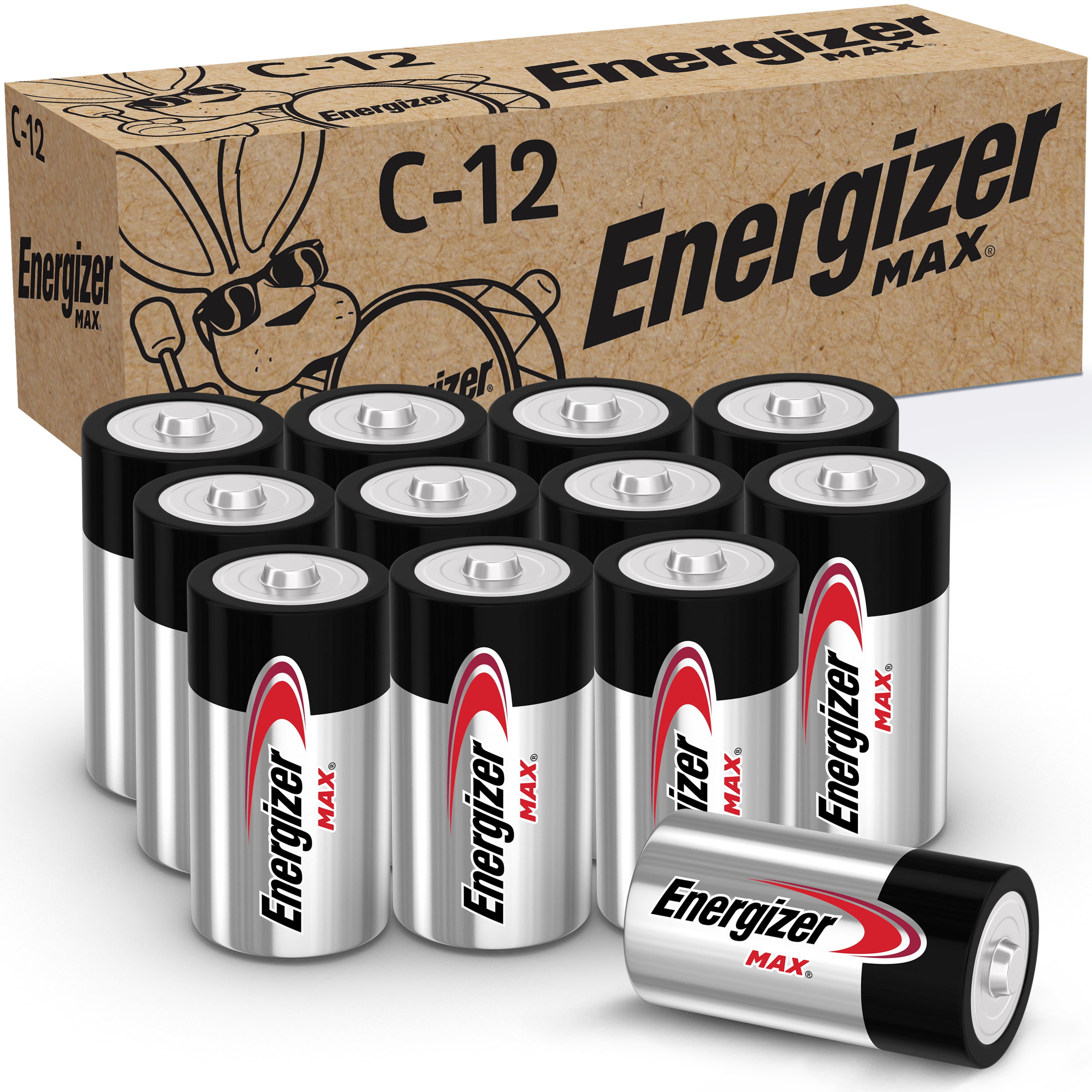C Battery Recycling: A Guide To Responsible Disposal

C Battery Recycling: A Guide To Responsible Disposal. Discover more detailed and exciting information on our website. Click the link below to start your adventure: Visit Best Website. Don't miss out!
Table of Contents
C Battery Recycling: A Guide to Responsible Disposal
Are you tired of tossing those seemingly insignificant C batteries into the trash? Think again! Improper disposal of C batteries, while seemingly inconsequential, contributes significantly to environmental pollution and poses a risk to human health. This comprehensive guide provides crucial information on C battery recycling, highlighting the importance of responsible disposal and offering practical steps you can take to make a difference. Learn how to properly recycle C batteries and contribute to a healthier planet.
Understanding the Environmental Impact of C Batteries
C batteries, like other batteries, contain hazardous materials such as heavy metals including lead, cadmium, and mercury. When these batteries end up in landfills, these toxins leach into the soil and groundwater, contaminating our ecosystems and posing a threat to wildlife and human health. This contamination can lead to:
- Soil and water pollution: Heavy metals can accumulate in the soil and water, making them unsuitable for plant growth and potentially contaminating drinking water sources.
- Air pollution: Improper disposal can lead to the release of harmful gases into the atmosphere during incineration.
- Health risks: Exposure to heavy metals can cause various health problems, ranging from mild irritation to serious neurological damage.
Why Recycle C Batteries?
Recycling C batteries is crucial for several reasons:
- Conservation of Resources: Recycling recovers valuable materials like steel, zinc, and manganese, reducing the need for mining new resources.
- Environmental Protection: It prevents hazardous materials from entering landfills and polluting our environment.
- Energy Savings: Manufacturing new batteries requires significant energy; recycling reduces this energy consumption.
How to Recycle C Batteries: A Step-by-Step Guide
Recycling your C batteries is easier than you think. Follow these simple steps:
- Locate a Recycling Center: Many communities offer battery recycling programs. Check your local waste management website or contact your city's sanitation department to find the nearest drop-off location. Search online for "C battery recycling near me" for quick results.
- Separate Your Batteries: Keep your C batteries separate from other household waste. This prevents accidental damage and ensures proper handling.
- Proper Packaging: Some recycling centers may require batteries to be packaged securely – often in a sealed plastic bag. Check the specific requirements of your local program.
- Consider Mail-Back Programs: Some battery manufacturers offer mail-back recycling programs. Check the packaging of your C batteries or their website for details. This is a convenient option for those without easy access to local drop-off points.
Beyond C Batteries: Expanding Your Recycling Efforts
While focusing on C battery recycling is a great start, remember that responsible waste disposal extends beyond this single item. Consider expanding your efforts to include:
- Household batteries of all sizes: From AA and AAA to 9V and button cell batteries, all require proper recycling.
- Electronics recycling: Old cell phones, laptops, and other electronics contain valuable materials and hazardous components that require specialized recycling.
- Responsible purchasing: Consider purchasing rechargeable batteries as an eco-friendly alternative to disposable batteries.
Take Action Today: Recycle Your C Batteries Responsibly
Don't underestimate the impact of your individual actions. By properly recycling your C batteries, you contribute to a healthier planet and a brighter future. Start today by finding your nearest recycling center and making a commitment to responsible disposal. Your small effort makes a big difference! Remember to check your local guidelines and manufacturer instructions for the most accurate and efficient recycling process. What are you waiting for? Let's make a change together.

Thank you for visiting our website wich cover about C Battery Recycling: A Guide To Responsible Disposal. We hope the information provided has been useful to you. Feel free to contact us if you have any questions or need further assistance. See you next time and dont miss to bookmark.
Featured Posts
-
 Retour En Service Du Rem Apres Des Perturbations Mardi
Feb 05, 2025
Retour En Service Du Rem Apres Des Perturbations Mardi
Feb 05, 2025 -
 Premier League Chelseas Shaky Win Against West Ham Dissected
Feb 05, 2025
Premier League Chelseas Shaky Win Against West Ham Dissected
Feb 05, 2025 -
 Schule In Schweden Schuesse Mit Mehreren Toten Polizei Ermittelt
Feb 05, 2025
Schule In Schweden Schuesse Mit Mehreren Toten Polizei Ermittelt
Feb 05, 2025 -
 St Marys Fire Update Western Location Explosive Fire Under Control
Feb 05, 2025
St Marys Fire Update Western Location Explosive Fire Under Control
Feb 05, 2025 -
 Prepare For The Abac January 2025 Conference A Complete Guide
Feb 05, 2025
Prepare For The Abac January 2025 Conference A Complete Guide
Feb 05, 2025
Latest Posts
-
 Deckee App Yanchep News On Dfes And Marine Rescue Wa Collaboration
Feb 05, 2025
Deckee App Yanchep News On Dfes And Marine Rescue Wa Collaboration
Feb 05, 2025 -
 Adrianne Baums Impact On Contemporary Art A Critical Analysis
Feb 05, 2025
Adrianne Baums Impact On Contemporary Art A Critical Analysis
Feb 05, 2025 -
 Is Puto Offensive A Sensitivity Guide To Its Usage
Feb 05, 2025
Is Puto Offensive A Sensitivity Guide To Its Usage
Feb 05, 2025 -
 C Battery Recycling A Guide To Responsible Disposal
Feb 05, 2025
C Battery Recycling A Guide To Responsible Disposal
Feb 05, 2025 -
 Sam Newman Fresh Allegations Surface Regarding Blair Interview
Feb 05, 2025
Sam Newman Fresh Allegations Surface Regarding Blair Interview
Feb 05, 2025
